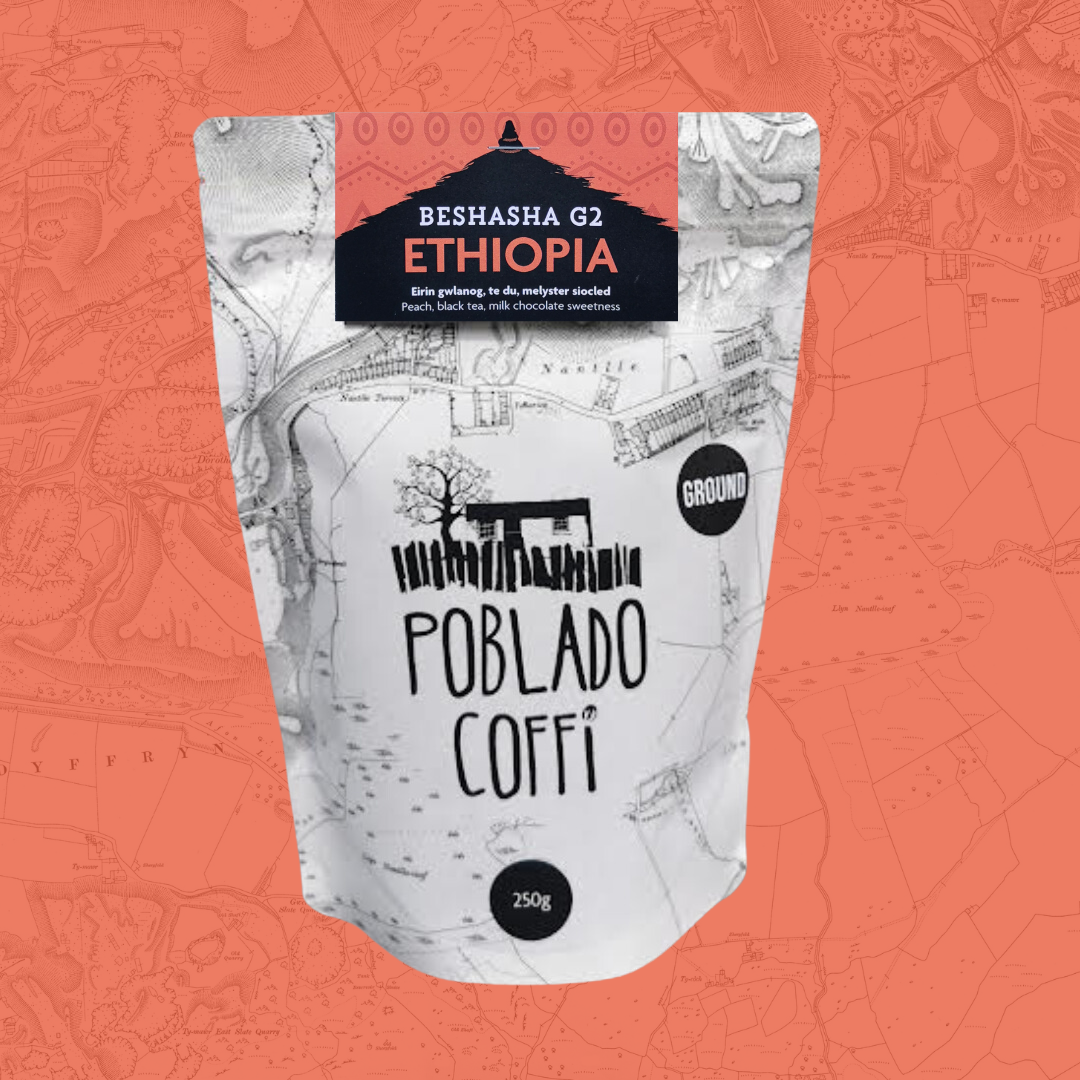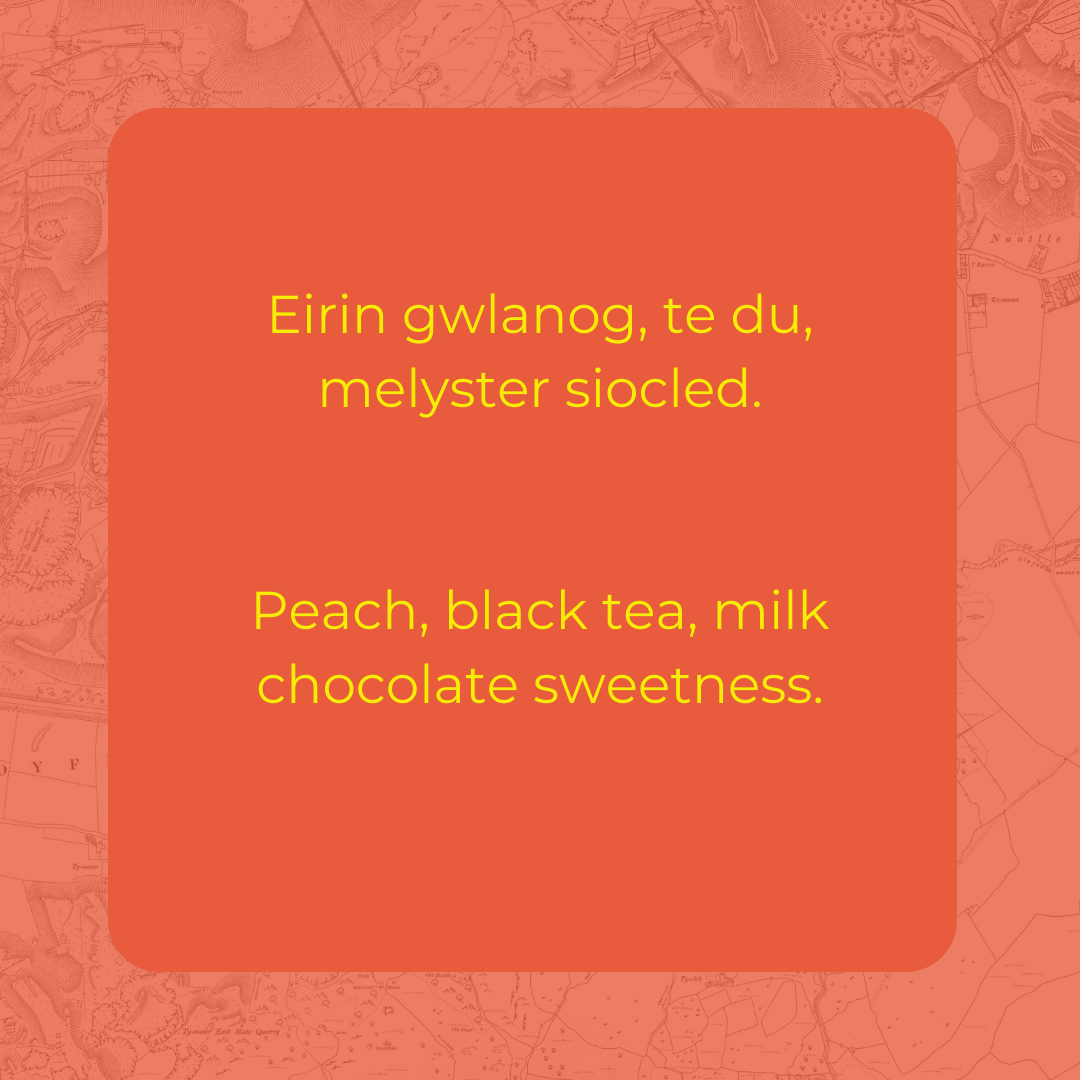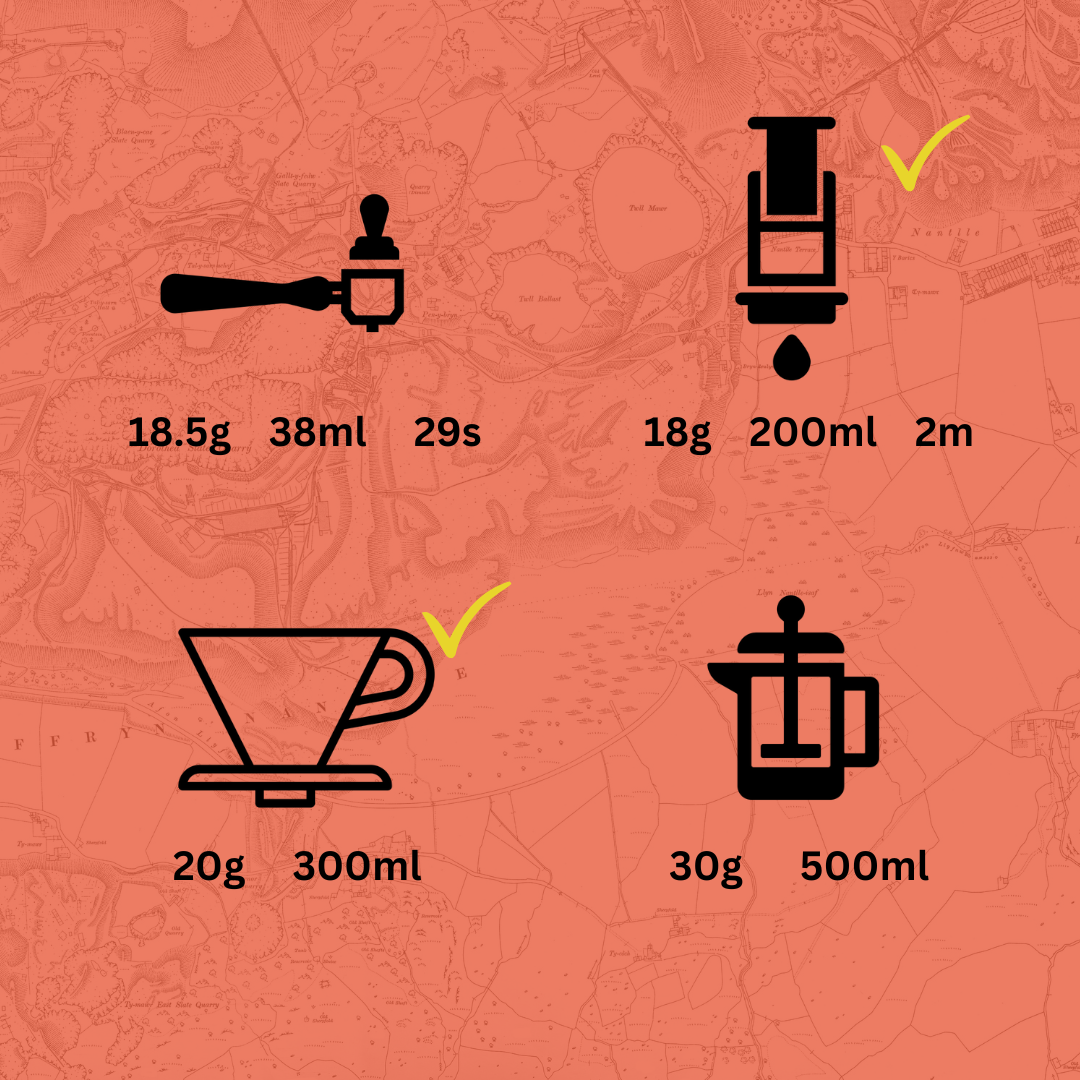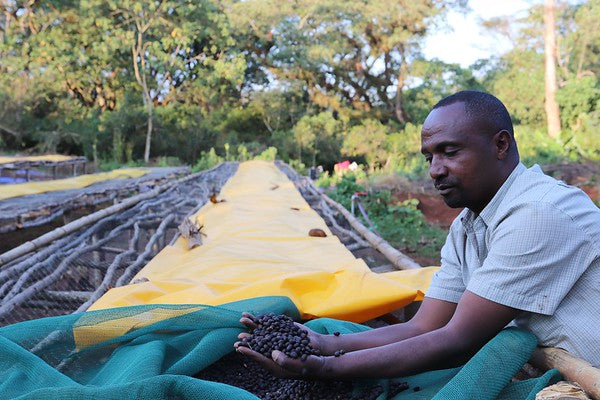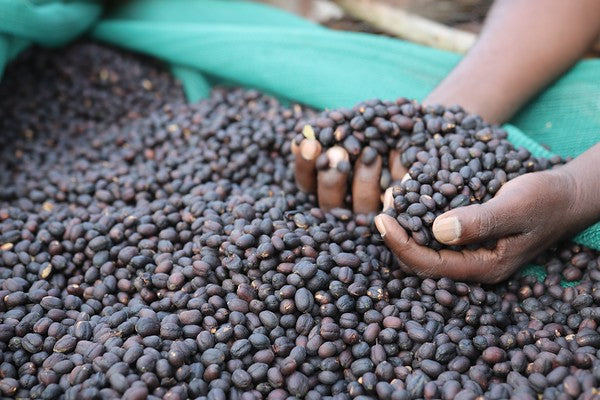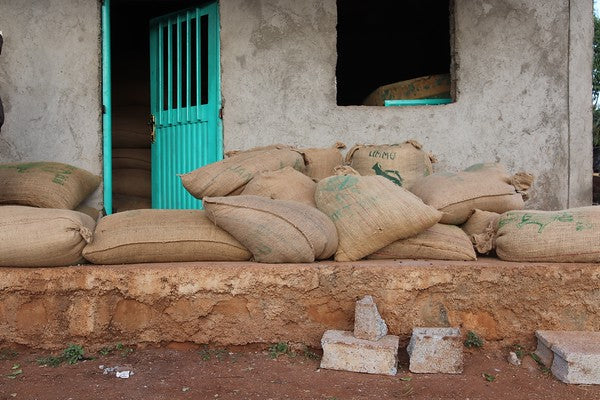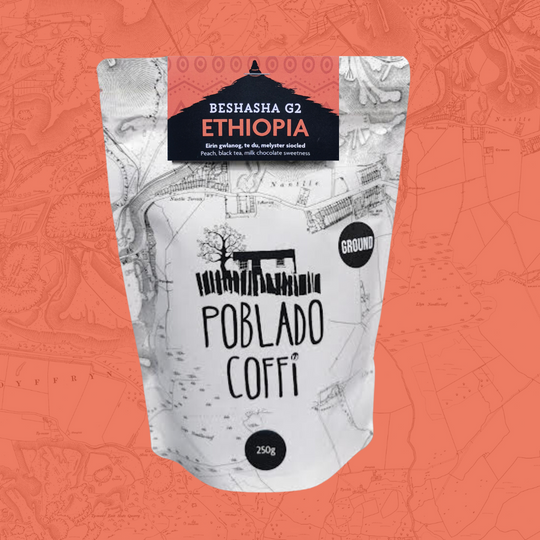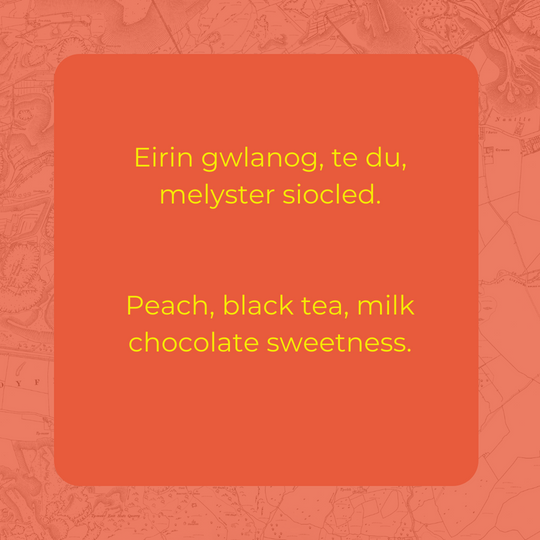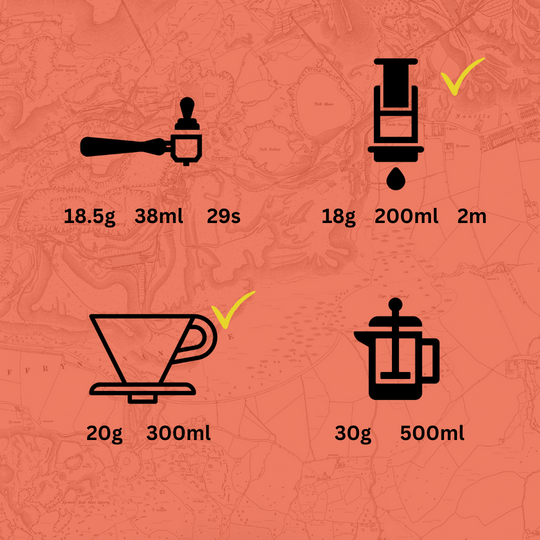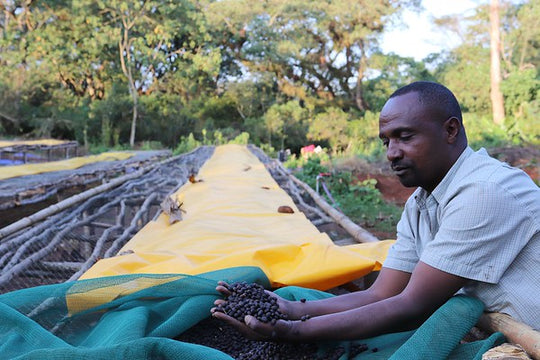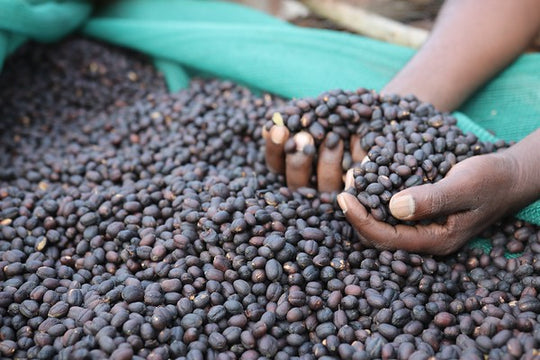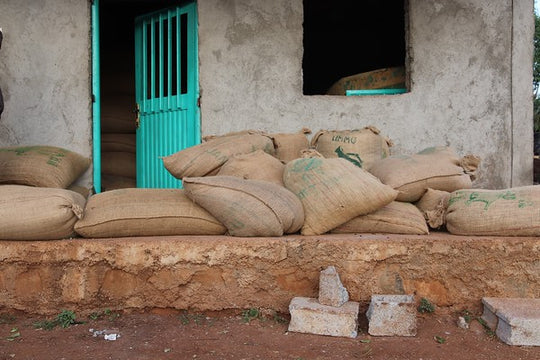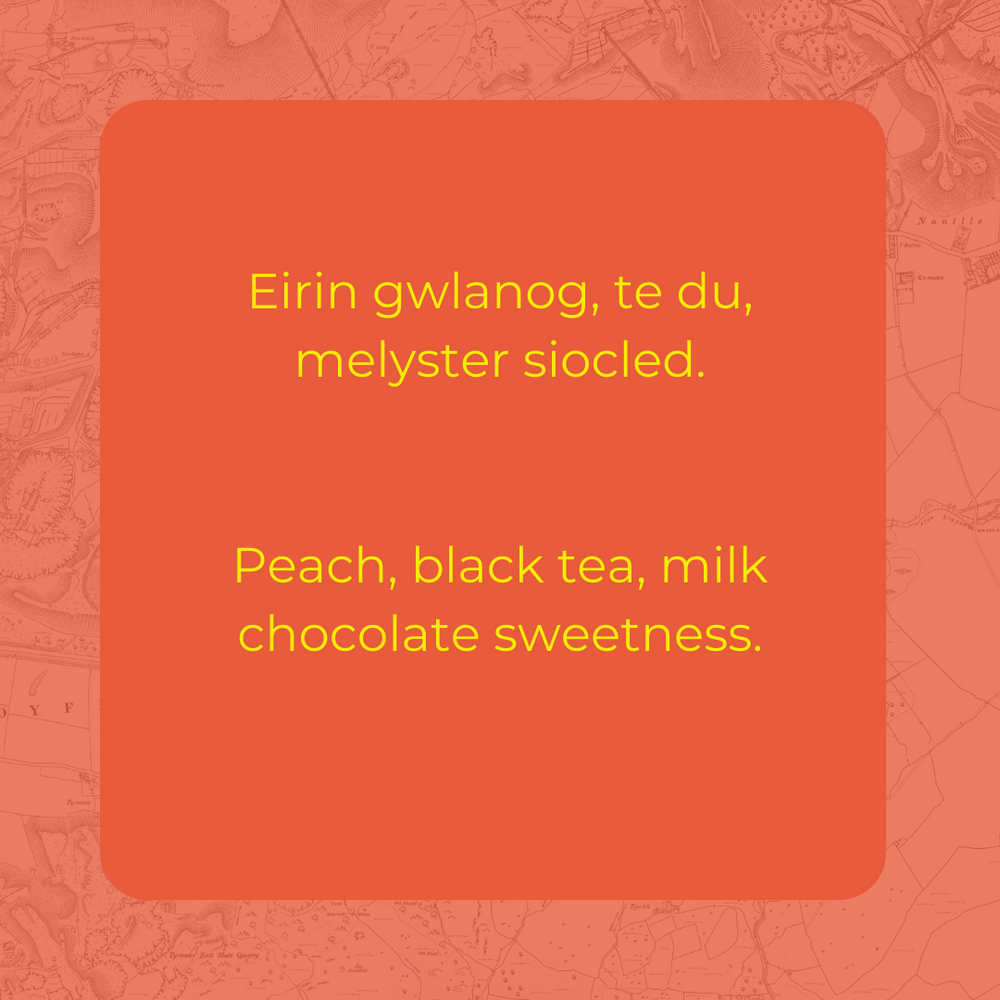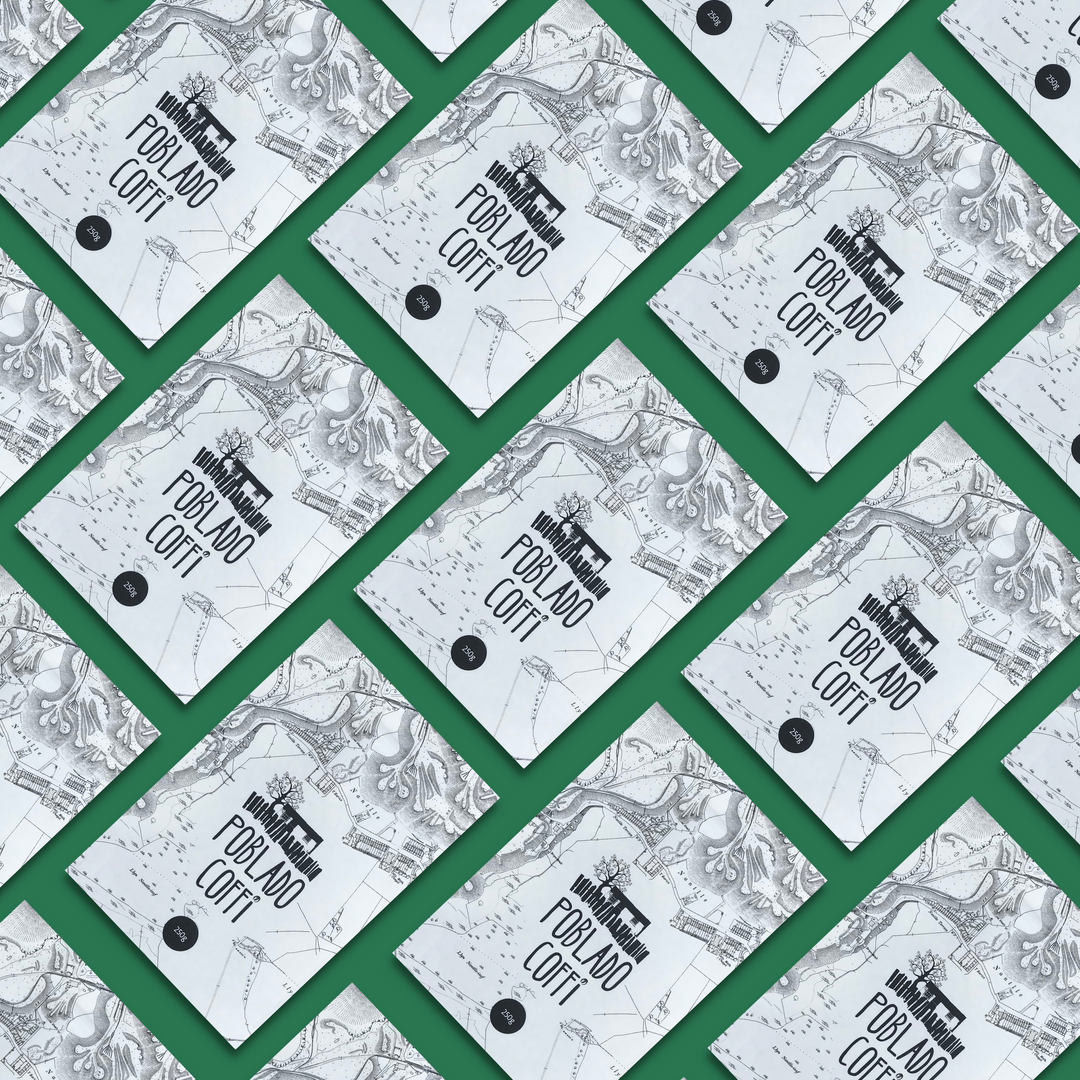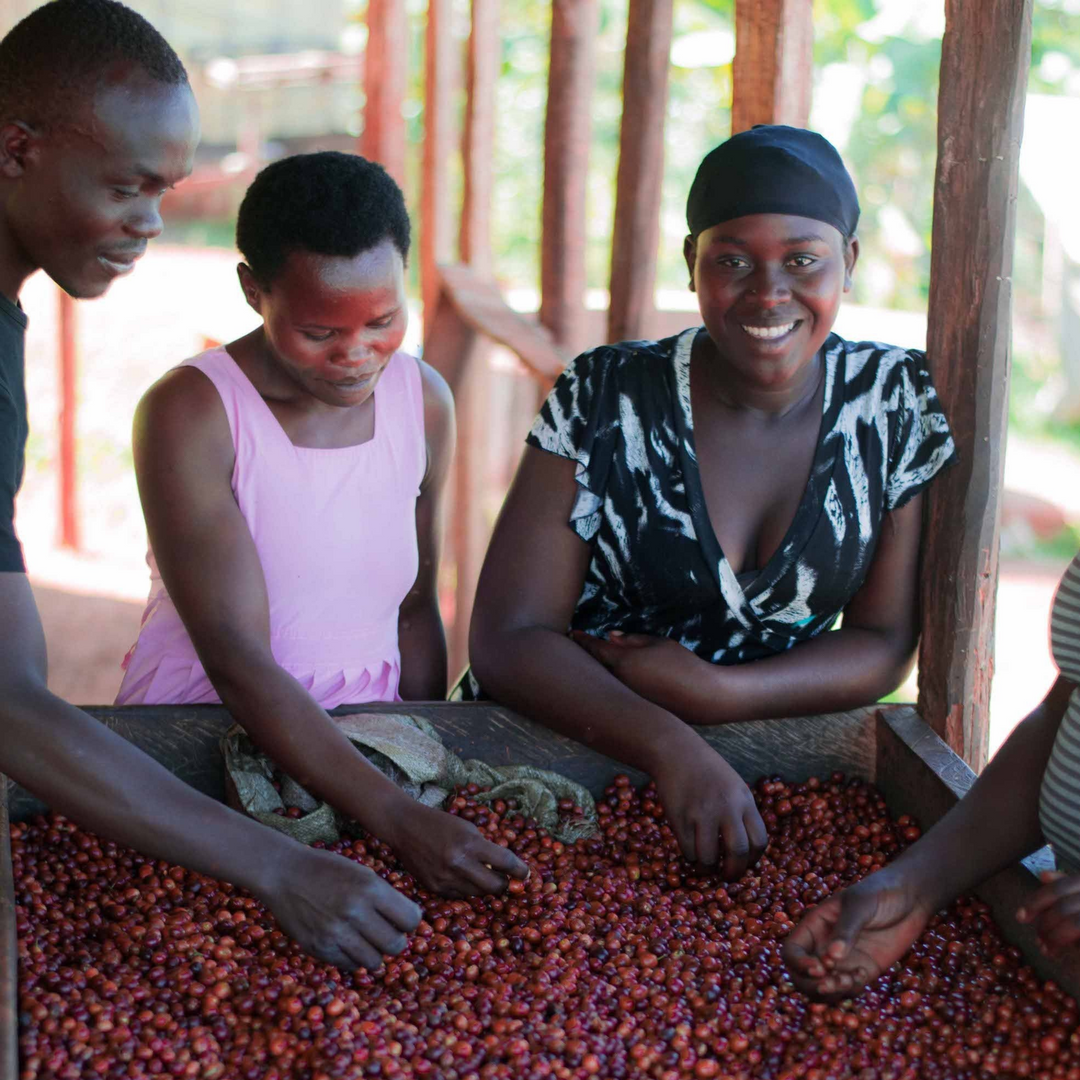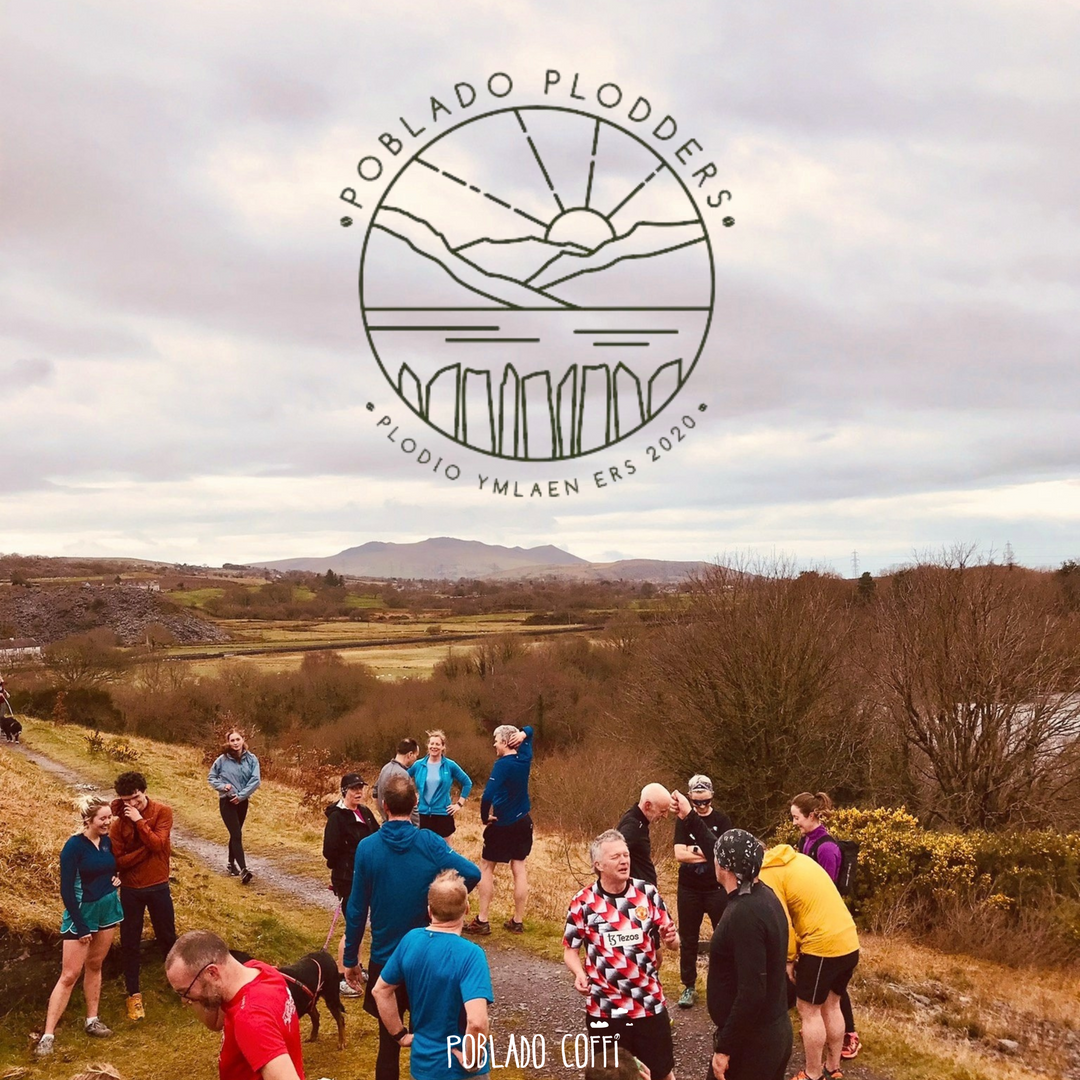Mustefa Abakeno is a smallholder with 18 hectares of land near Agaro in the Jimma Zone of Western Ethiopia. His farm is located at 2,040masl and is planted with coffee varieties from the Jimma research centre. Mustefa has a small disc pulper that he uses to wash-process half of his coffee; the other half is dried as a natural. Due to a lack of water in the area and limited space to ferment the coffee, Mustefa ferments the pulped coffee for a short period (8 hours) before he moves it to his drying beds (for 13-16 days), and the result is something like a light honey.
Mustefa only registered as an exporter in 2018 in order to sell his coffee directly to buyers, which he was able to do after changes to the regulations that year. The small wet mill he set up (called Beshasha) is used to process his own and outgrowers’ coffee, which he keeps separate and dries on raised beds near his house. Mustefa’s outgrowers are all neighbours and each have between 4 and 10 hectares of land.
Mustefa has a small field lab and in 2020 he bought a high-spec Sinar moisture reader to ensure that all the parchment dried in the stations was reaching the same moisture level before being stored in the warehouse. Falcon Speciality Coffee, our importers, have arranged for Harun, who is an agronomist, to work with Mustefa and his team. He has been assessing and grading the dried day-lots, putting them together based on quality and cupping profile. He is currently training farmers in good agricultural practices (GAP) in order to improve the quality and productivity of their coffee gardens.
In 2020, Mustefa acquired a second washing station, Kabira, to receive cherries from local producers. Due to subtle differences in location and microclimate, Beshasha now almost exclusively processes washed lots, while Kabira, which has more space for drying beds, is more suited to processing naturals.
Mustefa's story is a prime example of how the speciality coffee industry can really make a difference to the lives of coffee growers whilst ensuring we get access to some of the finest coffee's out there!


